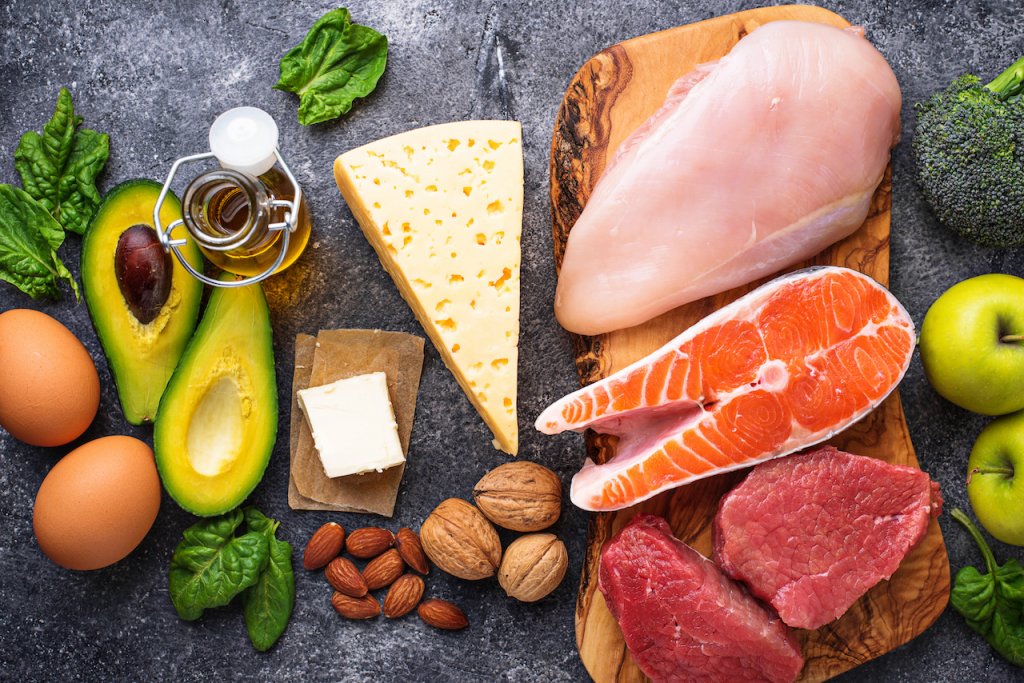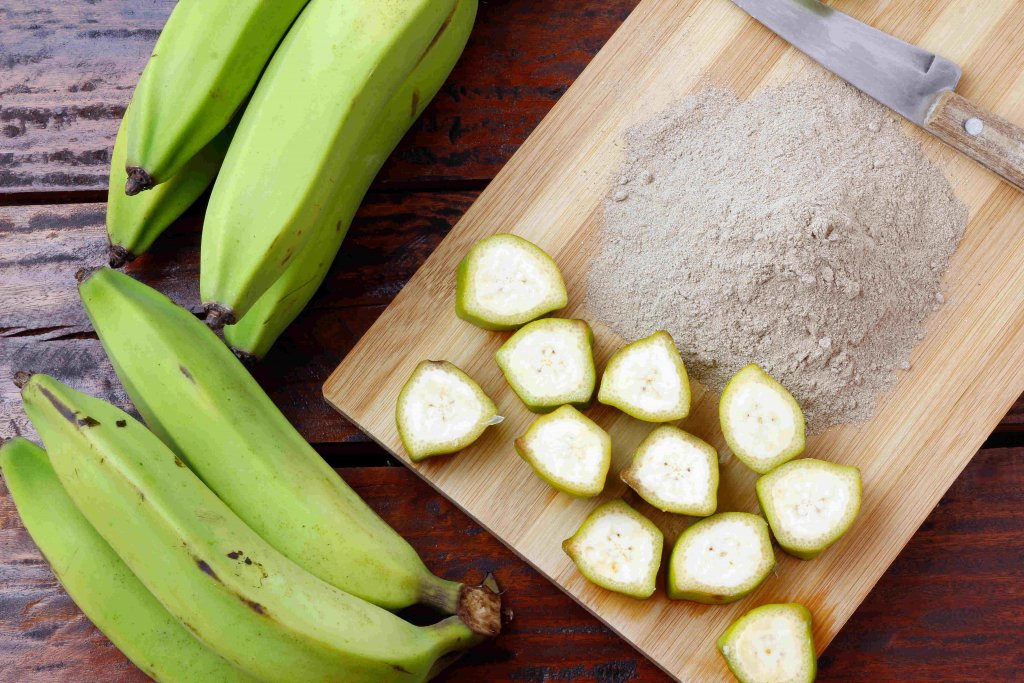In this article, we’ve cover the following topics:
- What Exactly Does a Keto-Friendly Lifestyle Entail?
- What Is Resistant Starch, and Why Should I Care?
- So, Is Resistant Starch Keto-Friendly?
- Everything Else You Need to Know About Resistant Starch and Keto
- Final Thoughts on Resistant Starch and Keto
One of the common questions about resistant starch is, “Can I eat resistant starch on a keto diet?” The answer is a resounding yes. Even though resistant starch is technically a carbohydrate, the majority of this unique and health-promoting starch isn’t actually digested and converted to glucose. It “resists” digestion and feeds the beneficial bacteria in the gut microbiome, improving bodily health through the gut biome, and doesn’t contribute to your daily net carb total.
What Exactly Does a Keto-Friendly Lifestyle Entail?
Ketogenic diets are becoming increasingly popular. “Keto” technically refers to a state of ketosis, a process that happens when your body doesn’t have enough carbohydrates to use as energy. In the absence of carbs, the body uses fat as fuel, producing acidic molecules called ketones, which it can use for energy in the absence of carbohydrates.
(Note: a keto diet should not be confused with ketoacidosis, a serious complication of diabetes.)
With home or lab testing, one can actually track if their body — specifically the liver — is producing ketones, which signifies the body being in a state of ketosis. In general, anyone aiming to be on a keto diet and live a keto-friendly lifestyle would need to limit their total daily carbohydrate intake to fewer than 20-50 grams of carbs per day or about 15 grams of total carbs per meal (though numbers vary slightly on what the carb threshold actually is). (1)
While the effects of a long-term keto diet are still somewhat controversial, keto diets are becoming increasingly popular for rapid weight loss where traditional dieting or therapeutics have failed.(2) While Mediterranean diets are still among the most studied diets for weight loss, Keto diets have also been shown to improve blood sugar markers like fasting blood sugar and insulin, largely a result of removing simple sugars and refined carbohydrates from the diet.

Common foods that are allowed within a keto-friendly lifestyle include:
- Meat: beef, poultry, and pork
- Fish: fatty fish like salmon, or lean fish like cod
- Butter and traditional animal fats like lard and tallow
- Eggs and cheese
- Olives, avocados and their oils
- Nuts and seeds
- A variety of vegetables
- Summer & spaghetti Squash
Foods that are commonly eliminated from keto diets include:
- Grains, inducing wheat
- Legumes including beans and peanuts
- Potatoes
- Certain dairy products
- Most other higher-carb squashes
- Most fruits, particularly high-sugar fruits
Because keto diets generally require heavy carbohydrate restriction, it’s right to wonder if a starch like resistant starch can fit into a keto-friendly lifestyle.
What is Resistant Starch — and Why Should I Care?
Resistant starch is a unique and powerful type of fiber, specifically called a “prebiotic fiber.” This is a type of dietary plant fiber that feeds the beneficial bacteria in the gut microbiome, which is found in certain types of carbohydrates.
The reason it’s called “resistant” is because it resists digestion in the digestive tract. Resistant starch bypasses your normal digestive process and makes it all the way — intact — to your large intestine, or gut microbiome, where it has “prebiotic” effect feeding the beneficial bacteria in the gut.

Most carbs break down into glucose and raise blood sugar. In contrast, resistant starch actively reduces blood sugar spikes and crashes, helps reduce appetite, and improves insulin sensitivity, which is your body’s natural ability to effectively metabolize sugar over the long term.
Additionally, resistant starch has been shown to help lower total and LDL cholesterol, which can be particularly beneficial for those that see large jumps in cholesterol numbers on a keto diet. (3)
So, is Resistant Starch Keto-Friendly?
So the big question at hand: is resistant starch keto-friendly? Yes. The majority of the plant fibers within resistant starch are not digested, don’t convert to glucose, and won’t hit your daily net carb count.
In fact, incorporating this superpowered starch into a keto diet may have additional benefits on top of any sustained health benefits from a keto diet. This is because prebiotic resistant starch feeds the beneficial bacteria in the gut, where it’s fermented into metabolites called short-chain fatty acids — of which, butyrate is one of the most important — that have been shown to have positive effects on virtually every single bodily system including regulating insulin and enhancing the production of the gut “hunger” hormone GLP-1. (4)
Interestingly, butyrate is also an analogue of a ketone called beta-hydroxybutyrate. Both butyrate and beta-hydroxybutyrate inhibit a similar enzyme called histone deacetylase (HDAC) to regulate cell mitochondria. (5)
What’s more: resistant starch has been shown to produce the most butyrate versus other dietary fibers. (6)
Additionally, butyrate has been shown to:
- Keep the cells in your intestinal tract (or your gut wall) healthy (7)
- Help promote a healthier microbiome (8)
- Benefit the brain and nervous system (9)
- Decrease inflammation (10)
- Reduce allergy symptoms (11)
- Improve sleep (12)
The gut microbiome can be thought of as a “control center” for health of the entire body, including hormonal systems like insulin, the cardiovascular system and heart health, mental health and skin health, and butyrate is a big piece of the puzzle in keeping the gut microbiome balanced and healthy. Omitting powerful dietary fibers like resistant starch on a keto diet may negatively impact gut microbiome diversity (bifidobacterium, in particular) and butyrate production in the gut could be lacking. (13)
Given resistant starch dietary fibers bypass digestion and are naturally low in net carbs, there’s no reason to avoid resistant starch fibers when following a keto-friendly diet.
Everything Else You Need to Know About Resistant Starch and Keto
Historically, ancestral populations got as much as 30-50 grams of resistant starch in their diet every single day. While industrial food manufacturing removes much of the fiber from processed foods, there are plenty of easy-to-find foods that you can add to your diet to increase your daily consumption of resistant starch including:
- Unripe green bananas and plantains
- Cooked and cooled oats, potatoes, rice and pasta
- Legumes like beans
- Hi-maize fiber
Anyone following a keto-friendly lifestyle should be cautious of the above foods that contain resistant starch because they can also contain digestive carbohydrates that will convert to glucose and potentially kick you out of ketosis.

There’s no specific recommended amount of resistant starch to consume specifically on a keto diet, but in general, most people should aim to get some amount of resistant starch in their diet every single day. As mentioned above, ancestral populations got plenty of daily resistant starch in their diets, and food processing has removed much of this beneficial fiber from our food system. Products that isolate and combine different types of resistant starches can be the best way to incorporate this prebiotic fiber into your diet without dramatically increasing carbs and kicking your body out of ketosis. (14)
While it may sound counterintuitive to incorporate starch into a keto diet, resistant starch can and should be a focus to include in a keto lifestyle if the gut microbiome and bodily health benefits listed above are important for your own personal health goals.
Final Thoughts on Resistant Starch and Keto
To sum it all up, resistant starch is an important dietary fiber to include in a daily keto diet and lifestyle. Its unique ability to bypass digestion and avoid being burned as glucose keep this prebiotic fiber on the “allowed” list for anyone following a keto diet, given its low level of net carbs. Resistant starch feeds the beneficial bacteria in the gut microbiome, helps improve microbiome health and diversity, and is instrumental in producing butyrate, a short-chain fatty acid that delivers a host of health improvements inside and out of the gut.
You can buy resistant starch with Supergut products that are an easy and effective way to get a concentrated source of resistant starch into your diet with shakes, bars, and a versatile fiber mix with low net carbs and no added sugar. Even better, Supergut uses a patented, proprietary combination of different sources of resistant starch and prebiotic fibers that have been clinically-validated to improve certain blood sugar and quality of life metrics.








